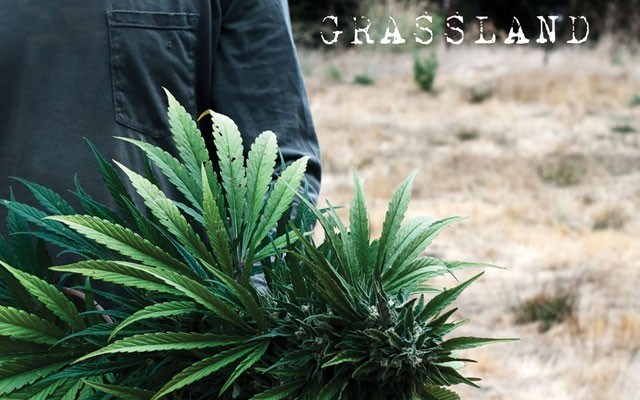ASPEN, Colo. — The book signing scheduled for Aspen on Dec. 30 is different in two ways. First, the event is to be held at Silverpeak Apothecary, a store that sells recreational marijuana. And second, the author, who goes by the pseudonym, H. Lee, planned to wear a disguise, to shield her identity.
The book, Grassland, was created by a former Aspen resident who spent several years taking photographs in Humboldt County, California.
"When I landed in Humboldt, my world was pretty rocked," the author told The Aspen Times.
"I had never seen a pot plant, never mind rows and rows of them. Everyone who lived in the area, in the county, it seemed, touched the industry in some way whether by growing, trimming, selling, peddling tools, dirt — you name it."
The Aspen Times says that while establishments like Silverpeak aim to make cannabis mainstream and market it like an artisan luxury good, "there is still an unavoidably illicit tinge to the business, which remains at odds with federal law."
By extension, that same cloud hovered over Lee's project. To protect her identity, she said she would sign books wearing a disguise. That shadowy approach also somehow allowed her to gain access to the world of cannabis crops.
"I promised the growers, trimmers and anyone I photographed that should the project come to light, I would publish it under a pseudonym," she explained. "People felt more comfortable with that, and some, who may not have been willing before, opened their doors to me."
High mountain pass to get paved in 2015
CRESTED BUTTE, Colo. — The paving of Colorado's high country continues. The Crested Butte News reports that Gunnison County expects to pave the west side of Cottonwood Pass next summer. The east side, from Buena Vista, was paved many years ago.
The notch in the Sawatch Range is at 3,700 metres. It has been prominent during the last several summers as a leg of the USA Pro Cycling Challenge, as riders have pedalled from Crested Butte to Aspen. Part of that day's stage has included 12,095-foot Independence Pass. Both passes remain closed during winter.
Gunnison County for years has talked about paving the 20-kilometre segment to the summit but has refrained because of the cost. The key to the breakthrough, county public works boss Marlene Crosby tells the News, is that the federal government apparently will pick up a much larger share. With the new formula, Gunnison County will have to pay just $1.4 million of the total $27.1 million cost.
A paved road is considered to be safer than a gravel road, Crosby says, and the maintenance costs are expected to decline.
Measuring crowds by the flush and the watt
ASPEN, Colo. — Mountain resort towns famously swell in population during holiday periods. One time-honoured tradition for measuring the influx is to measure the sewage effluent, what is sometimes called the flush factor.
But another might be to measure the electrical use. In Aspen, the average demand of the city's electrical utility is around six or seven megawatts, but at Christmas or the fourth of July demand can rise to 14 megawatts.
By any measure, Aspen was stuffed to the gill in the days after Christmas. Rooms in hotels and lodges in Aspen itself were gone, with just a few units available for rent at nearby Snowmass Village. Whether this is any different from last year or some other years remains unknown. Still unknown are rental rates for the Christmas week lodging.
The airport was plenty busy, too. The Daily news reports 23 inbound flights on Christmas Day, 28 flights the day after, and 33 on Saturday, all of them full. The latter day's flights delivered 2,300 passengers.
Colorado dam to get hydro generation
GRANBY, Colo. — Granby Dam holds back part of the Colorado River so that it can be diverted via a tunnel under Rocky Mountain National Park to farms and cities on the Great Plains of Colorado.
But the reservoir must release water for eventual consumption in Phoenix, Las Vegas and Los Angeles. In 2015, turbines will be installed in the dam to produce electricity from that falling water.
The Colorado Water Conservation Board provided a $5.7 million loan to cover the full cost. The unit can deliver a maximum of seven million kilowatt-hours per year, producing revenue of $390,000 annually.
The 91-metre-tall dam was constructed between 1941 and 1950.




